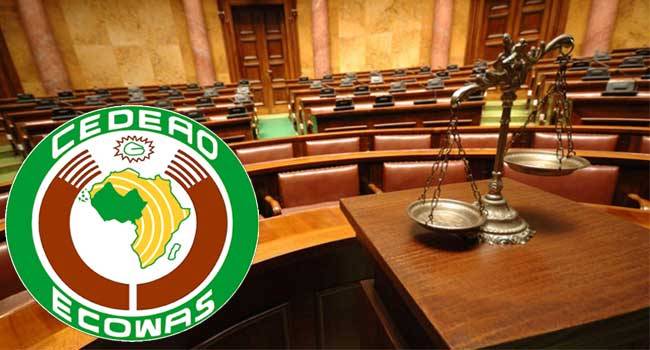SAYS That the Nigerian Press Council Act of 1992 fails to recognise public interest media, including rights of online and citizen journalists.
The ECOWAS Court of Justice in Abuja has ruled that some sections of the Nigerian Press Council Act constitute a violation of citizens’ rights, including their right to freedom of expression, and must be immediately amended to align them with international best practices.
The court made the pronouncement in its judgment on a suit filed by two Nigerian journalists, Isaac Olamikan and Edoghogho Ugberease. They had sued the Nigerian government, alleging that the Nigerian Press Council Act of 1992 was discriminatory and breached their right to freedom of expression.
The Nigerian Press Council established by the contested Act is a statutory organization vested with the responsibility of ensuring “the highest ethical and professional standards in the media.” It is empowered by the law to conduct inquiries into complaints about the print media outlets and the conduct of any person or organization towards the press, amongst other functions.
Delivering the court’s judgment on the suit on Friday, 24 November, a judge on the court’s panel, Dupe Atoki, declared that sections 19 (1)(a), 27, and 37 of the Nigerian Press Council (NPC) Act failed to recognize public interest media including rights of online and citizen journalists. Highlights of the decision are contained in a statement issued by the ECOWAS Court’s Communication Division on Sunday.
The court said that the offending sections of the Nigerian law violate Article 9 (1) of the African Charter on Human and Peoples’ Rights (ACHPR), and Article 8 (1) and 10 (2) of the Declaration of Principles on Freedom of Expression in Africa. While on the alleged violation of Article 9 (freedom of expression), the Court noted that Section 19(1) and Section 27 of the Press Act imposing minimum educational requirements, age limits,, and registration, were restrictive and interfered with the right to freedom of expression, and therefore violated Article 9 (2).
In reaching its decision, the court acknowledged the impact of technology in the evolving media space with the advent of citizen journalism, influencers and content creators who share news, commentary, and analyses on social issues. Though not qualified in the traditional sense, they contributed to shaping public opinion, the court held.
Referencing Malala Yousafzai, a Pakistani education activist, and Greta Thunberg, a Swedish environmental activist as good examples of teenagers who deployed social media in their advocacy, attaining global recognition, the court said online media provides “unrestricted opportunity to gather information and express opinion.”
The regional court ordered the Nigerian government “to amend these contested sections to align with international practices that promote free, pluralistic, and professional journalism.” Earlier in the judgment, the court dismissed the Nigerian government’s preliminary objection, holding that it had jurisdiction to entertain and determine the case





